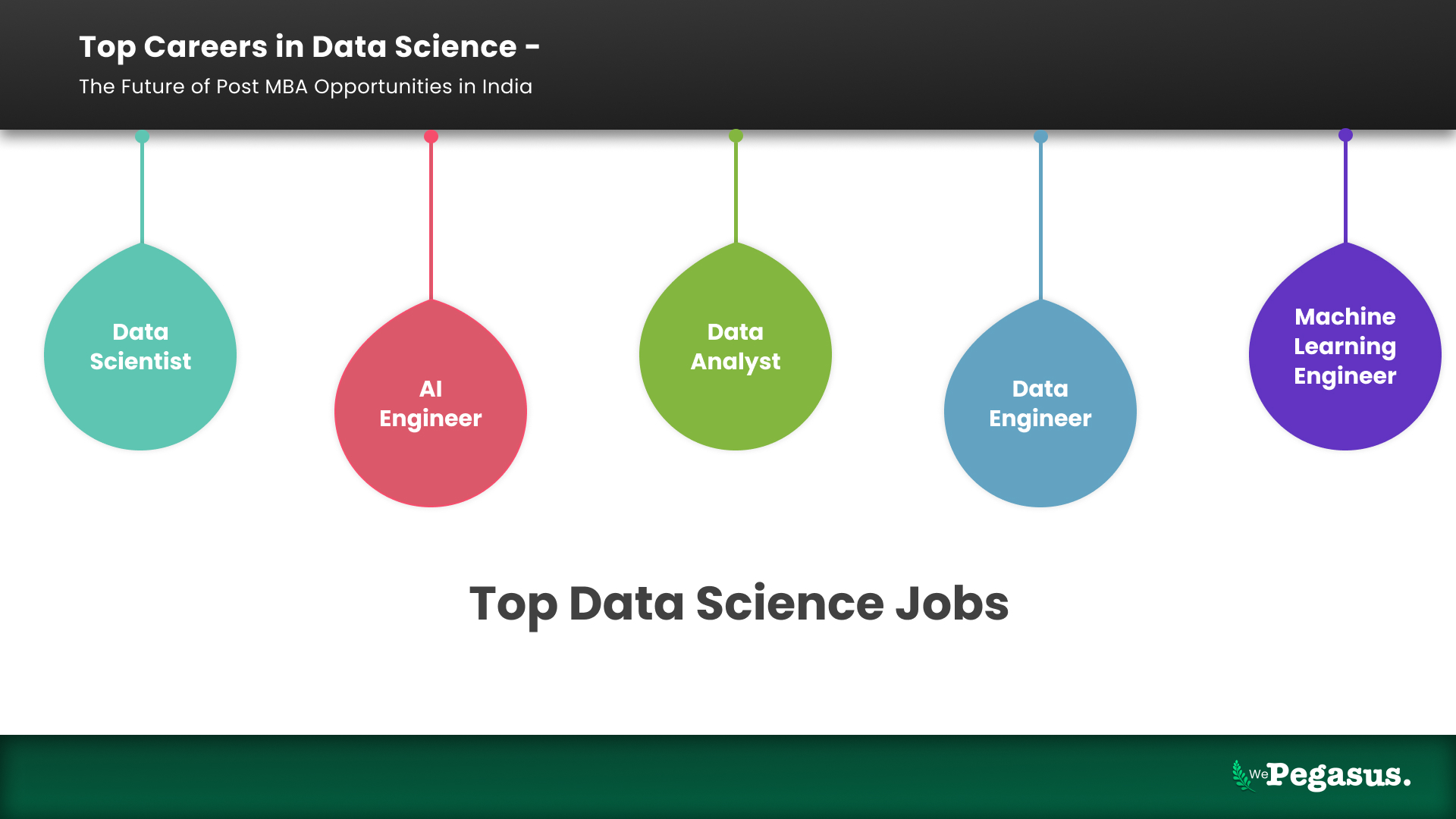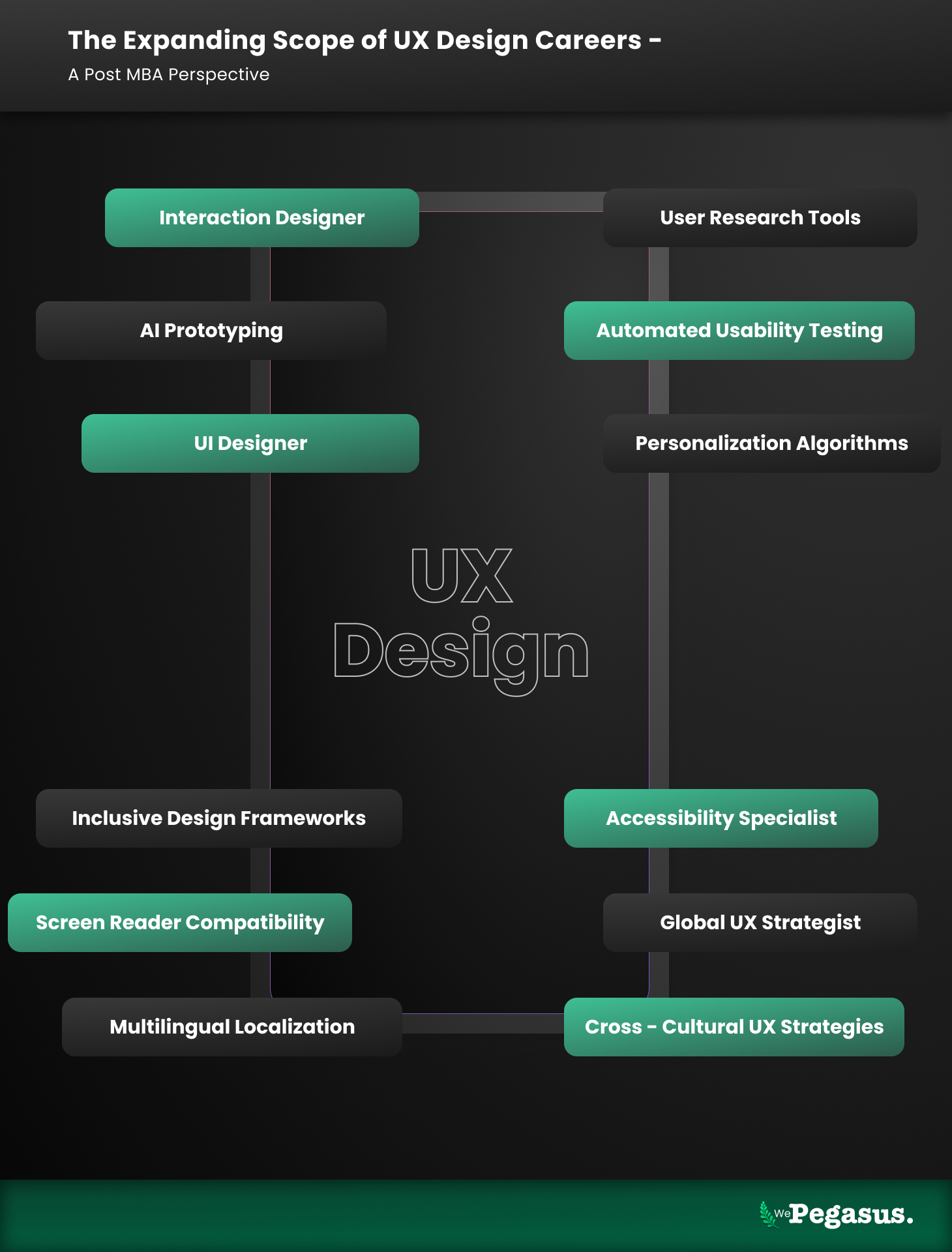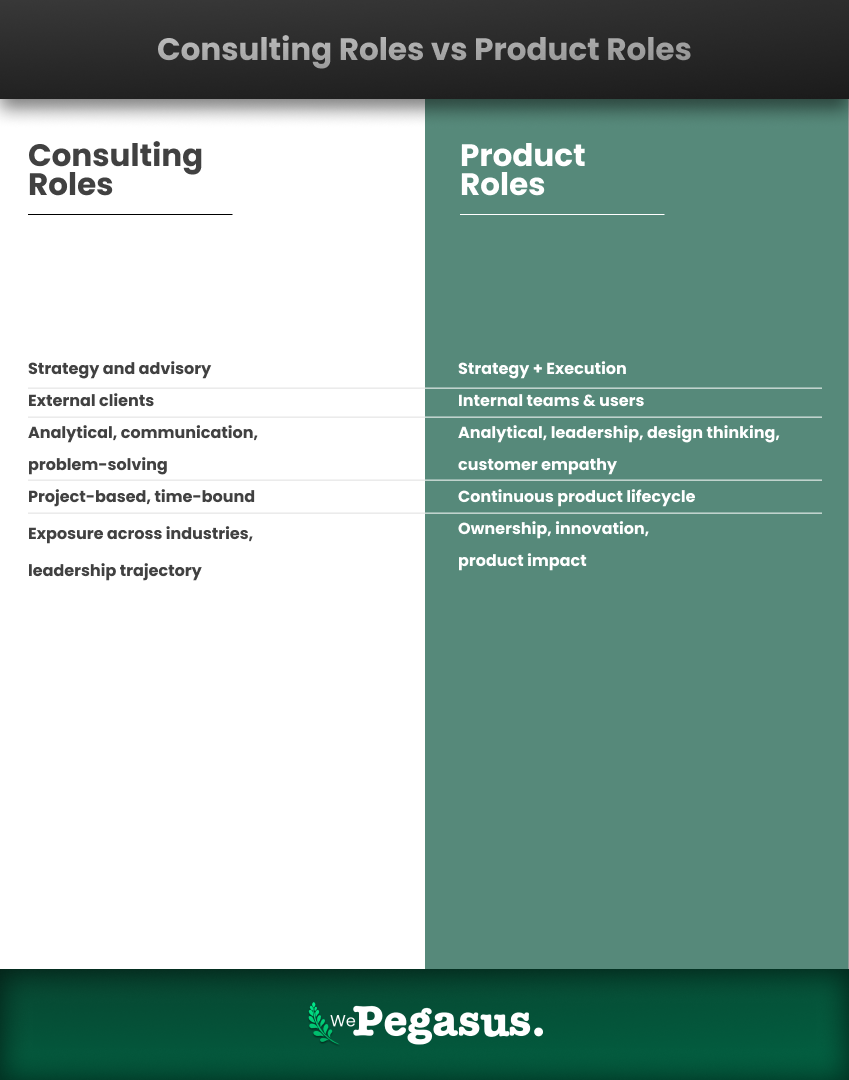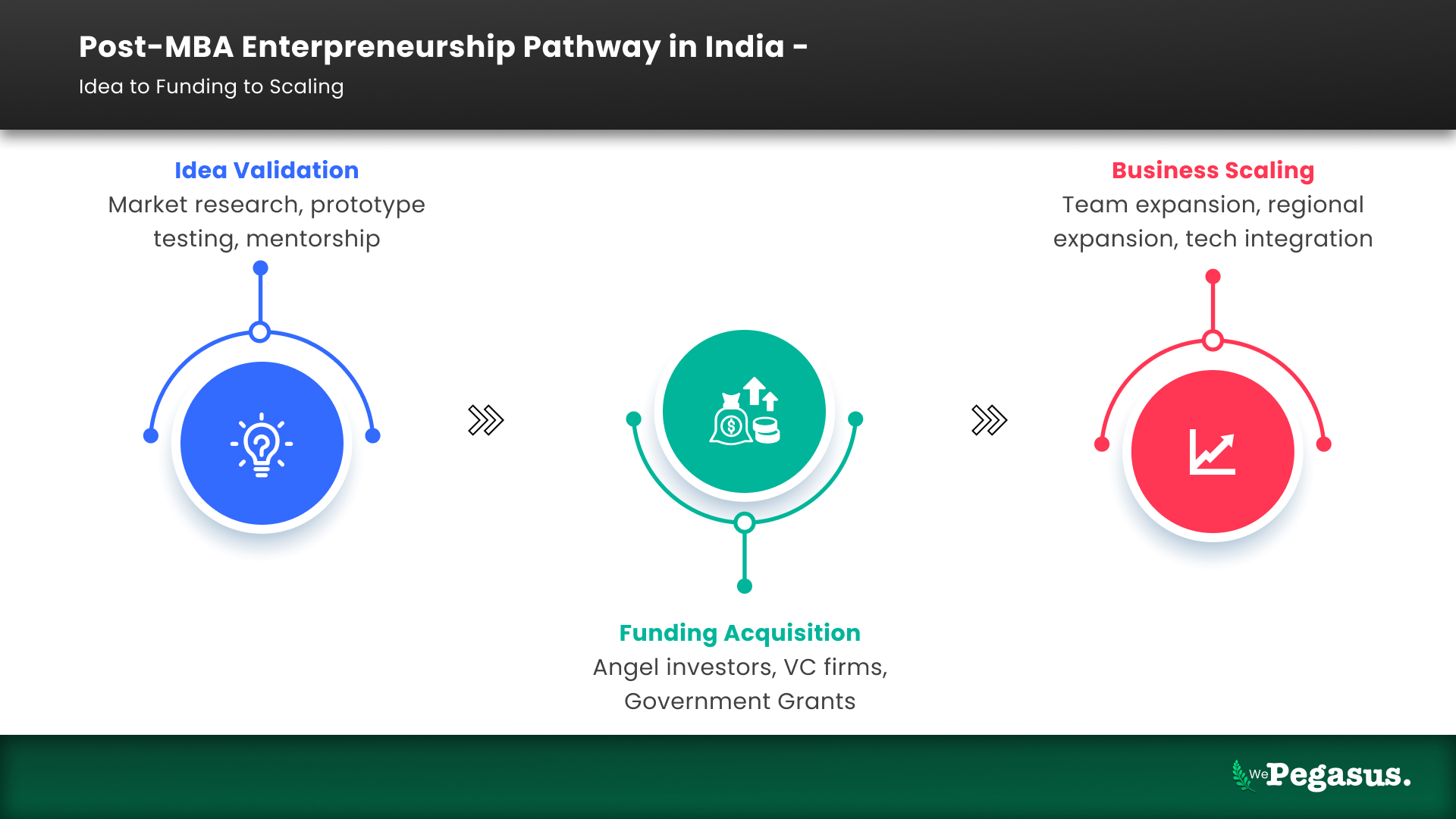Career Abroad After a Master’s
Harvard Business School MBA graduates earn a staggering $8.5 million in median lifetime compensation over a 35-year career, more than double the $4.1 million earned by the average MBA graduate (Link)
A Post MBA degree significantly enhances global employability by combining advanced management knowledge with strategic leadership skills. Many professionals pursue international careers to gain exposure to diverse markets, cross-cultural business environments, and global decision-making processes.
Countries such as the United States, United Kingdom, Canada, Germany, and Singapore are top destinations for Post MBA careers, offering opportunities across consulting, technology, finance, and supply chain management. In the USA, multinational companies like Google, Amazon, and Deloitte recruit MBA graduates for roles in product management, business analytics, and strategy. Europe, on the other hand, emphasizes sustainability, innovation, and digital transformation, creating a rising demand for professionals with expertise in ESG, data-driven marketing, and financial restructuring.
Emerging markets such as Singapore, Dubai, and Australia are also building strong business ecosystems, providing global talent with pathways in FinTech, entrepreneurship, and operations management. These regions reward adaptability and analytical thinking, core strengths developed during an MBA.
To build a successful Post MBA career abroad, professionals must understand local market conditions, visa policies, and cultural nuances. Networking through alumni associations, LinkedIn, and international internships plays a vital role in accessing hidden opportunities. With the rise of hybrid work, geography is becoming less of a limitation, allowing global collaboration.
Ultimately, a Post MBA degree is not just a qualification, it’s a launchpad for international careers that combine leadership, innovation, and cultural intelligence.
1.Career Roadmap After MBA: Building a Strategic Post MBA Path

A well-structured Post MBA career roadmap serves as the foundation for long-term professional growth. The transition after completing an MBA is not just about landing a high-paying role; it’s about aligning ambitions, skill development, and evolving industry trends to create meaningful careers in the global marketplace.
The key to success in a Post MBA career lies in clarity—knowing where you want to go and developing the competencies that can take you there. The journey typically unfolds across three major stages: early, mid, and senior levels, each with unique goals and challenges.
Early Stage (1–3 Years): Laying the Foundation
The early stage of your Post MBA career is about application and exploration. This is the time to convert classroom knowledge into practical results. Professionals usually begin as management trainees, business analysts, or associate consultants, roles that help them understand corporate frameworks and operational dynamics.
To stand out, Post MBA graduates should focus on earning relevant certifications in business analytics, financial modeling, or supply chain management. Continuous learning enhances market readiness and shows adaptability—an essential trait in today’s competitive careers landscape. Additionally, participating in professional communities and leveraging alumni networks can open doors to mentorship and international exposure.
Mid Stage (3–7 Years): Building Expertise and Leadership
During this stage, Post MBA professionals start transitioning from execution to strategy. This is where specialization becomes key. Roles such as Product Manager, Operations Head, Marketing Strategist, or Business Consultant allow individuals to apply both analytical and leadership skills.
Networking plays a vital role in this phase. Attending industry conferences, collaborating on cross-functional projects, and pursuing global assignments can enrich your professional experience. Many Post MBA careers evolve rapidly during this phase as professionals take on greater responsibility and visibility.
This is also the ideal time to refine leadership communication, negotiation, and data-driven decision-making abilities, which are core to advancing in senior roles.
Senior Stage (8+ Years): Leading and Creating Impact
The senior phase of a Post MBA career is marked by strategic influence and leadership. Professionals often move into roles like Director, Vice President, or Entrepreneur, overseeing large teams and driving business growth. At this level, leadership, innovation, and vision outweigh technical expertise.
Some pursue further education, such as an Executive MBA or specialized certifications in digital transformation, sustainability, or strategic finance, to strengthen their decision-making edge. Others venture into entrepreneurship, leveraging their Post MBA experience to create organizations that align with their values and market insights.
The Key to a Successful Post MBA Career
Ultimately, a thriving Post MBA career roadmap blends technical expertise, emotional intelligence, and adaptability. Professionals who align personal aspirations with global business trends are best positioned for success.
In a fast-changing world shaped by AI, sustainability, and digital innovation, the most successful careers are those built on continuous learning and strategic evolution. A clear roadmap not only accelerates professional growth but also ensures lasting relevance in the ever-evolving corporate ecosystem.
2. Top Careers in Data Science: The Future of Post MBA Opportunities in India

The future of data science in India is dynamic and full of possibilities. Across industries—finance, healthcare, e-commerce, and technology—organizations are integrating advanced analytics, artificial intelligence (AI), and machine learning (ML) into their operations. For professionals pursuing Post MBA careers, data science presents one of the most rewarding and future-ready domains.
Why Data Science Careers Are Booming in India
India’s digital economy is growing exponentially, driven by cloud computing, automation, and big data. As businesses strive for smarter, data-driven decisions, Post MBA professionals skilled in analytics and AI are in high demand. Reports predict that India will require over one million AI and data science experts by 2026, with job openings in analytics growing by nearly 50% in five years.
Generative AI is also transforming industries—automating content creation, optimizing predictive models, and personalizing customer experiences. With this transformation, data science has become an integral part of global Post MBA careers, combining strategic management knowledge with technical excellence.
Top Careers in Data Science
- Data Scientist – A core role for those pursuing analytics-driven careers. Data scientists use ML models and statistics to uncover insights from complex datasets. They are among the highest-paid professionals in India, with employers like Google, Amazon, and Microsoft leading the hiring race.
- Data Analyst – A perfect starting point for Post MBA graduates entering the analytics domain. Analysts interpret data, build dashboards using tools like Tableau and Power BI, and provide insights that guide business strategy. This role serves as the foundation for advanced positions in data science.
- Data Engineer – These professionals design scalable data architectures and manage pipelines using platforms like Hadoop, Spark, and AWS. For Post MBA professionals, data engineering offers a blend of technical mastery and business impact.
- Machine Learning Engineer – ML engineers develop predictive algorithms and deploy them into production systems. With AI becoming central to innovation, this role represents the future of Post MBA careers focused on technology-led transformation.
- AI Engineer – AI engineers design intelligent systems using generative and ethical AI. As India’s AI adoption accelerates, these roles are expanding across sectors like fintech, healthcare, and retail.
The Future Landscape of Data Science Careers
With India’s data science market expected to exceed USD 2.5 billion by 2033, Post MBA careers in data analytics, AI engineering, and quantitative modeling are set to dominate the professional landscape. Universities and online platforms are offering ROI-driven courses to help aspirants master cloud computing, MLOps, and generative AI.
Moreover, the growing emphasis on ethical AI and data privacy ensures sustainable, long-term careers for professionals who blend technical innovation with strategic insight.
For Post MBA graduates, data science isn’t just another field—it’s the bridge between business strategy and technological advancement. From data analysts to AI engineers, the spectrum of careers in this field offers global exposure, financial growth, and purpose-driven innovation.
The roadmap is clear: the future of Post MBA careers in data science lies in mastering AI, analytics, and adaptability—key skills for those ready to lead India’s next data-driven revolution.
3. The Expanding Scope of UX Design Careers: A Post MBA Perspective

In the digital-first era, where every click, scroll, and interaction shapes customer perception, UX Design (User Experience Design) has become a defining element of modern business success. Beyond aesthetics, UX Design is about crafting seamless experiences that bridge human needs and technology. As companies worldwide invest in customer-centric innovation, the scope of UX Design careers is skyrocketing—especially for those pursuing a Post MBA career in design, strategy, or product management.
Why UX Design Is the Future of Careers
UX Design is no longer limited to tech startups or app development firms. Today, it’s integral to industries as diverse as healthcare, finance, e-commerce, and even education. From designing mobile interfaces for fintech apps to creating immersive experiences for online learning platforms, UX Designers influence how users interact with digital ecosystems.
As organizations race to deliver intuitive and inclusive products, the demand for skilled UX professionals has grown by over 22% annually, according to LinkedIn’s Global Jobs Report. For those planning long-term careers, UX Design offers not just job stability but also creative fulfillment, as designers continuously improve products that shape everyday life.
UX Design After MBA: Merging Business Insight with Design Thinking
A Post MBA career in UX Design blends strategic vision with creative problem-solving. MBA graduates bring an analytical mindset, leadership skills, and a deep understanding of consumer psychology—all crucial in UX roles. Post MBA professionals often move into hybrid positions like UX Strategist, Product Designer, or Design Thinking Consultant, bridging the gap between design, marketing, and business outcomes.
Moreover, global companies increasingly prefer managers who understand both business metrics and user behavior. A Post MBA in UX Design enables professionals to guide cross-functional teams, align design decisions with KPIs, and drive innovation in customer experience strategies.
Career Pathways in UX Design
The UX ecosystem is rich with career opportunities across multiple roles and seniority levels.
1. UX Researcher – Focuses on user behavior through surveys, interviews, and usability tests.
2. UI/UX Designer – Creates intuitive interfaces and user journeys for digital products.
3. UX Strategist – Aligns design choices with business goals, ideal for Post MBA professionals.
4. Product Manager (UX-focused) – Bridges design, technology, and business to deliver impactful products.
5. UX Director or Chief Experience Officer (CXO) – Leads the entire experience strategy for organizations.
The growing focus on digital transformation and customer retention ensures long-term growth and high-paying careers in this field.
Skills That Define UX Design Careers
A successful UX Design career requires a mix of technical proficiency, empathy, and analytical skills. Key tools and knowledge areas include:
- Design Tools: Figma, Adobe XD, Sketch, InVision
- Research Methods: A/B testing, wireframing, prototyping
- Soft Skills: Collaboration, storytelling, critical thinking
- Business Knowledge: Understanding ROI, customer journeys, and digital strategy—especially useful for Post MBA professionals.
Those who pair creativity with business acumen can shape not only products but entire brand experiences.
The Future Belongs to Design Thinkers
As the digital economy evolves, UX Design careers are becoming central to business strategy. For Post MBA graduates, this field offers the perfect blend of creativity, leadership, and innovation. Whether designing the next viral app or reimagining enterprise software, UX Designers are transforming how the world interacts with technology. The future of UX Design careers lies in empathy-driven, data-informed decision-making—where business meets design to create experiences that truly matter. For aspiring leaders, it’s not just a profession; it’s a movement shaping the way we live, work, and connect.
4.The Future of AI and ML Careers in India: 2025 and Beyond
In the dynamic world of technology, Artificial Intelligence (AI) and Machine Learning (ML) are no longer futuristic concepts—they define the future of Post MBA careers in India. From automating operations to personalizing user experiences, AI and ML have become the engines of business transformation. As organizations continue to adopt these technologies, new roles are emerging that didn’t even exist five years ago. For professionals and graduates alike, the next decade promises an explosion of opportunities, innovation, and global exposure.

Why AI and ML Are Reshaping Post MBA Careers
India’s AI market is projected to reach USD 17 billion by 2027, fueled by the government’s Digital India initiative and corporate investments in automation. The demand for AI and ML professionals is soaring, with these skills ranking among the top three most sought-after in the IT sector. This surge isn’t limited to tech companies — industries such as healthcare, finance, e-commerce, and manufacturing are also transforming their workforce structures to integrate AI capabilities.
For those planning Post MBA careers, AI and ML offer an unparalleled edge. Combining managerial expertise with technical insight, professionals can step into roles like AI Product Manager, Data Scientist, Machine Learning Engineer, or MLOps Specialist — each offering high growth potential and global demand.
Emerging Career Paths in AI and ML
AI-driven careers are expanding faster than ever. Entry-level candidates, such as freshers with strong analytical and coding skills, can begin as Data Analysts or Junior ML Engineers, working with data pipelines, model training, and deployment. As experience grows, professionals often transition to specialized roles like NLP Engineer, Computer Vision Expert, or AI Research Scientist, focusing on generative AI, chatbots, and predictive algorithms.
By the mid-career stage, many professionals shift toward AI leadership and strategy-based roles, overseeing end-to-end automation solutions, governance, and ethics in AI adoption. The highest-paying careers in AI and ML in India currently include AI Architects and Chief Data Officers, with salaries ranging from ₹50 LPA to ₹1 crore for senior positions in sectors like fintech, healthcare, and SaaS.
Moreover, cities such as Bangalore, Hyderabad, and Pune are emerging as AI powerhouses, with Bangalore offering the most lucrative opportunities. As global remote work gains traction, Indian professionals are also tapping into international AI roles, bridging local innovation with global standards.
Skills and Certifications to Build a Post MBA Career in AI
A successful Post MBA career in AI requires a blend of technical and strategic skills. Key competencies include Python, TensorFlow, data analytics, statistics, and cloud computing. Certifications from IITs, ISB, and global platforms like AWS or Coursera add structured learning credibility but must be complemented with real-world projects and internships to demonstrate capability.
Professionals who combine business acumen with AI deployment expertise often find themselves at the forefront of innovation—designing solutions that balance profitability, scalability, and ethical responsibility.
The Future Belongs to the Adaptive
The future of Post MBA careers in AI and ML is brighter than ever. With new job titles emerging, salaries climbing, and demand outpacing supply, India stands at the forefront of the global AI revolution. Whether you’re a fresher seeking your first opportunity or a professional planning a transition, the path forward lies in upskilling, specializing, and staying adaptable.
In this fast-evolving field, success won’t just come from writing algorithms—it will come from understanding how those algorithms transform industries. The AI and ML revolution is not just about technology; it’s about redefining the future of work, leadership, and global careers.
5.Consulting vs Product Roles: Which Career Path is Right for You?

Choosing between consulting roles and product roles is one of the most critical decisions for professionals at the start of their careers or even Post MBA. Both paths promise high growth, challenging work, and strategic influence, but they cater to different skill sets, personality types, and long-term ambitions. If you’ve ever asked yourself, “Should I pursue consulting careers or dive into product roles?”—this guide will provide clarity with insights, examples, and actionable advice.
Understanding Consulting Roles
Consulting roles have traditionally been the playground for strategic thinkers who thrive on problem-solving, client engagement, and exposure to multiple industries. Consultants are often the first to spot inefficiencies, analyze market trends, and recommend solutions that shape a company’s trajectory.
Key Features of Consulting Roles:
- Variety of Work: From operational improvement to digital transformation, consultants tackle diverse problems.
- Client-Facing Focus: Strong communication and presentation skills are critical.
- Structured Career Progression: Analyst → Consultant → Manager → Principal → Partner.
- Global Exposure: Consulting roles often involve travel and exposure to international clients.
Consulting is ideal for professionals who enjoy fast-paced environments, analytical rigor, and the challenge of influencing decisions without being directly responsible for execution. Post MBA, consulting careers are often stepping stones to senior leadership, C-suite positions, or entrepreneurial ventures because of the breadth of exposure and network built during consulting stints.
Decoding Product Roles
On the other hand, product roles center around ownership and creation. Product managers, product owners, and product strategists are responsible for defining what to build, why it matters, and how it aligns with business goals. Unlike consulting, product roles require deep involvement in execution alongside strategy.
Key Features of Product Roles:
- End-to-End Ownership: From ideation to launch and iteration, product professionals manage the lifecycle.
- Cross-Functional Leadership: Collaborating with design, engineering, marketing, and analytics is the norm.
- Customer-Centric Focus: Decisions are guided by user insights, metrics, and market research.
- Innovation-Driven: Product roles allow experimentation and creativity to drive competitive advantage.
For Post MBA professionals, product roles offer the opportunity to combine business acumen with hands-on problem-solving, creating measurable impact in fast-growing companies and tech startups. Career growth often leads to Director of Product, VP of Product, or Chief Product Officer, roles where strategy and execution converge.
Consulting vs Product: Key Differences
| Feature | Consulting Roles | Product Roles |
| Focus | Strategy and advisory | Strategy + Execution |
| Stakeholders | External clients | Internal teams & users |
| Skill Set | Analytical, communication, problem-solving | Analytical, leadership, design thinking, customer empathy |
| Work Style | Project-based, time-bound | Continuous product lifecycle |
| Career Outcome | Exposure across industries, leadership trajectory | Ownership, innovation, product impact |
Making the Choice
The decision between consulting careers and product roles comes down to preference for variety versus ownership, client engagement versus product ownership, and strategic advising versus direct impact.
- Choose consulting if: You thrive in ambiguity, love problem-solving across industries, and seek rapid learning and mentorship.
- Choose product if: You are passionate about building things, shaping customer experiences, and owning outcomes that directly impact business growth.
For Post MBA professionals, both paths are highly lucrative, globally recognized, and offer robust career mobility. Consulting builds broad business judgment, while product roles build deep domain expertise and an ownership mindset.
No Wrong Choice, Only Alignment
There’s no one-size-fits-all answer in the consulting vs product roles debate. Both offer high-impact careers, significant compensation, and skill-building opportunities. The right path aligns with your strengths, interests, and long-term vision.
The assertive takeaway: If you want breadth, influence across industries, and a strong problem-solving foundation, consulting roles are your launchpad. If you want ownership, creativity, and measurable product impact, product roles are your arena. Post MBA, your choice should reflect not just ambition, but where you want to spend your days solving problems, advising clients or building products that shape the future.
6.From Campus to Career: Building Global Careers After Masters

For many Indian students, the dream of a career abroad after masters begins long before graduation. While campus placements in India offer stability, the allure of global exposure, cutting-edge industries, and the highest salary abroad after masters draws ambitious graduates to international opportunities. From tech hubs in the USA to engineering powerhouses in Germany, and finance centers in the UK, the journey from classroom to global workplace is both challenging and rewarding.
Why Indian Students Seek Jobs Abroad After MS
Jobs abroad for Indian students are appealing for multiple reasons: competitive salaries, exposure to emerging technologies, and access to diverse professional networks. Countries like the USA, Canada, Germany, the UK, and Australia provide structured pathways through post-study work visas, making the transition from student to professional smoother. For Indian graduates, technical expertise, problem-solving skills, and adaptability make them highly desirable in global markets.
Country-Wise Opportunities
USA: With OPT and STEM extensions, Indian students can work for up to three years after graduation. Popular roles include software engineer, AI specialist, and data scientist, with salaries starting around $90,000 and climbing to $120,000+. The US offers unmatched growth, especially in tech and data science, but competition is fierce and visa policies strict.
Canada: The Post-Graduation Work Permit (PGWP) allows graduates to work for up to three years, often leading to Permanent Residency (PR). Roles in IT, finance, and healthcare are abundant, offering a balance of career growth, high demand, and long-term settlement options.
Germany: Known for engineering and R&D, Germany provides an 18-month job search visa and competitive salaries (€55,000–65,000). Indian students in engineering and computer science benefit from low tuition, strong industrial ties, and career stability.
UK & Australia: The Graduate Route in the UK and post-study work visas in Australia offer 2–3 years to gain experience. Finance, consulting, IT, healthcare, and engineering are prominent sectors, with salaries competitive and lifestyle appealing.
Key Considerations for Post MS Opportunities
While salary and career growth are important, students must navigate visa regulations, cultural integration, and networking gaps. Leveraging alumni networks, internships, and localized CVs increases the chances of landing jobs abroad for Indian students.
The path to a career abroad after masters is rigorous but transformative. Whether pursuing data science in Silicon Valley, engineering in Munich, or consulting in London, Indian students can achieve both professional success and global exposure. With strategic planning, skill-building, and guidance, such as that provided by platforms like WePegasus, the journey becomes not just about employment, but about crafting a sustainable, high-impact global career.
7. Entrepreneurship as a Career in India: A Post MBA Perspective

Entrepreneurship as a career in India has transitioned from a high-risk pursuit to a respected and thriving professional pathway. With the evolution of the Indian startup ecosystem, digital innovation, and strong government support, entrepreneurship has emerged as one of the most promising Post MBA careers for students, professionals, and beginners alike.
Today’s Post MBA graduates are redefining success — choosing freedom, creativity, and innovation over routine corporate structures. From tech startups to green energy ventures, India’s entrepreneurial landscape offers diverse and rewarding opportunities.
What Does Entrepreneurship as a Career Mean?
Entrepreneurship as a career means creating, building, and managing your own business instead of working as an employee. Entrepreneurs identify problems, design innovative solutions, and take calculated risks to add value to society while generating profits.
For Post MBA professionals, entrepreneurship allows direct application of strategic, financial, and leadership skills acquired during their studies. Startups like Flipkart, Zomato, and Ola show how bold ideas, backed by solid execution, can turn into billion-dollar success stories.
Top Sectors Driving Entrepreneurial Careers in India
1. Tech Startups
Tech entrepreneurship is the heartbeat of modern India. With minimal investment and access to digital infrastructure, Post MBA graduates are launching apps, AI-based platforms, and SaaS businesses that serve global audiences. Startups like Zoho, Freshworks, and CRED show how innovation, scalability, and smart execution can create massive impact.
2. E-commerce Ventures
E-commerce has democratized entrepreneurship, enabling anyone with a laptop and an idea to start selling online. For Post MBA professionals, this sector combines analytical decision-making with creative branding. D2C businesses like Nykaa, Lenskart, and Meesho prove that the e-commerce ecosystem offers limitless growth and financial freedom.
3. Healthcare and Biotech
The healthcare sector provides meaningful Post MBA career opportunities for those who want to blend profit with purpose. Entrepreneurs are leveraging telemedicine, biotech innovations, and AI-driven diagnostics to make healthcare accessible and affordable. Startups like Practo and HealthifyMe represent this powerful union of technology and empathy.
4. Green and Sustainable Businesses
Sustainability-focused ventures are redefining entrepreneurship in India. With government support and rising environmental awareness, startups in renewable energy, recycling, and eco-friendly products are thriving. Companies like ReNew Power and Phool.co demonstrate that sustainable business models can generate both profit and purpose.
5. Agribusiness and Agri-tech
Agribusiness entrepreneurship empowers farmers and ensures food security. Post MBA graduates are developing supply chain models, AI-based crop solutions, and organic farming systems that combine innovation with impact. Startups like Ninjacart and AgroStar are transforming Indian agriculture into a tech-driven ecosystem.
6. Creative and Digital Industries
Digital marketing, design, and content creation are fast-growing entrepreneurial sectors. For Post MBA graduates with creative and strategic insight, building digital brands or agencies offers autonomy and financial growth. Startups like The Glitch and TVF highlight how imagination can lead to sustainable careers in the creative economy.
Why Choose Entrepreneurship as a Post MBA Career?
The appeal of entrepreneurship as a Post MBA career lies in autonomy, creativity, and potential for wealth creation. It allows graduates to apply classroom learning, from finance to leadership-in real-world ventures. Entrepreneurs build not only businesses but legacies that outlive traditional jobs.
Benefits include:
Financial Freedom: Income is performance-based, not salary-bound.
Innovation: Opportunity to create real-world solutions.
Flexibility: Control over work-life balance.
Impact: Direct contribution to society and the economy.
However, entrepreneurship also carries risks, including financial uncertainty, long working hours, and market volatility. Yet, for many Post MBA professionals, these challenges are outweighed by the satisfaction of independence and innovation.
Government Support and Startup Ecosystem
India’s government has introduced several schemes to promote entrepreneurship and strengthen Post MBA career pathways. Initiatives like Startup India, MUDRA Loans, and Stand-Up India offer funding, mentorship, and incubation support. Additionally, venture capitalists and angel investors are actively backing innovative ideas, making entrepreneurship more accessible than ever.
Starting an Entrepreneurial Journey After an MBA
For Post MBA graduates and working professionals ready to start their entrepreneurial journey:
1. Identify a Problem: Research market gaps and emerging needs.
2. Develop a Business Model: Focus on scalability and sustainability.
3. Leverage Your Network: Collaborate with peers and mentors.
4. Secure Funding: Explore venture capital, government grants, or self-funding.
5. Build a Team: Hire people who complement your skills and vision.
Entrepreneurship offers endless possibilities for those who combine knowledge with persistence.
8.Work-Life Balance in Post MBA Careers: Redefining Success

In today’s competitive world, professionals are seeking more than high-paying roles, they’re looking for balance, purpose, and growth. This mindset has redefined the modern workplace, especially among Post MBA graduates who aspire to meaningful careers without sacrificing well-being.
The Modern Meaning of Work-Life Balance
For many professionals exploring Post MBA careers, work-life balance is not a luxury; it’s a necessity. It refers to the ability to manage work, relationships, and personal time effectively while continuing to excel in professional pursuits. A successful career today means achieving growth while maintaining mental and emotional health.
Work-life balance directly influences productivity, decision-making, and creativity—all crucial skills in Post MBA careers such as consulting, marketing, and data analytics. The rise of hybrid work models and flexible job structures has enabled graduates to pursue global opportunities while enjoying personal flexibility.
Global Shifts in Career Expectations
Across the USA, UK, and India, Post MBA professionals are prioritizing flexibility and autonomy when selecting careers. High-growth roles in data science, product management, and strategic consulting are particularly appealing because they combine professional challenge with personal freedom.
Leading corporations like Google, Deloitte, and Infosys are reshaping their work cultures to promote wellness and balance. They’ve realized that the success of a Post MBA career depends not only on strategic skills but also on sustained motivation and satisfaction.
The Intersection of High-Paying Jobs and Healthy Living
Traditionally, high-paying careers were seen as demanding and exhausting. However, a Post MBA career in technology, finance, or entrepreneurship now often offers flexibility and remote options. Professionals are redefining success—not just by salary, but by quality of life.
For instance, Post MBA graduates entering roles in analytics or consulting can leverage digital collaboration tools to work across time zones while maintaining family and personal commitments. By choosing organizations that value mental health, they ensure both long-term productivity and fulfillment.
Shared Responsibility for Work-Life Harmony
Work-life balance in Post MBA careers is a shared responsibility between professionals and employers. Individuals must learn to set priorities, delegate tasks, and maintain discipline, while organizations must create policies that promote balance, such as flexible hours and mental wellness programs.
Progressive firms have discovered that balanced professionals are more innovative, resilient, and loyal, key traits in leadership-driven Post MBA careers. This culture shift is not only improving productivity but also redefining corporate success metrics.
The New Definition of Career Success
Today’s professionals view balance as a career goal, not a perk. The most successful Post MBA graduates pursue careers that align with their values, purpose, and personal aspirations. They understand that emotional stability and physical health directly fuel professional growth.
Ultimately, thriving Post MBA careers are those that blend ambition with wellness, proving that real success lies not in constant hustle, but in harmony between work, growth, and life.
WePegasus
“Dreaming of a Post MBA career abroad but don’t know where to start? Don’t worry, WePegasus has your back… and your SOP!”
Studying abroad isn’ just about packing bags and boarding flights—it’s about launching a global career, making killer connections, and telling your story so well that admission committees can’t ignore you. That’s where WePegasus swoops in like a superhero… minus the cape (but maybe a laptop).
Find Your Perfect Program: From MBA in Silicon Valley to Data Science in Berlin, we match your skills and ambitions with the right universities worldwide.
Craft Killer SOPs & Applications: Your story, your strengths, your dreams—we turn them into application magic that gets noticed.
Plan Your Global Career: Internships, networking, skill upgrades—we make sure your Post MBA journey abroad doesn’t just end at graduation. Why choose us? Because we don’t just guide, we strategize, personalize, and future-proof your career.
Think of us as your GPS to global opportunities, without the annoying “recalculating” moments. From application to landing that dream role abroad, WePegasus is your ultimate partner for high-impact Post MBA careers.
“Your passport to international success starts with a well-crafted SOP… and yes, we write those too!”
Sources:
- https://www.mba.com/careers
- https://www.topmba.com/mba-programs/careers-after-mba
- https://analyticsindiamag.com/data-science-careers-in-india/
- https://designyourway.net/blog/ux-design/
- https://aimresearch.substack.com/p/ai-ml-jobs-trends-india
- https://www.linkedin.com/pulse/consulting-vs-product-management-career-path
- https://niti.gov.in/sites/default/files/2021-10/DPIITStartupEcosystemReport.pdf
- https://www.studyinternational.com/news/best-countries-job-after-masters/
- https://www.glassdoor.com/Explore/top-mba-jobs
- https://yourstory.com/2023/07/top-post-mba-startups-india


